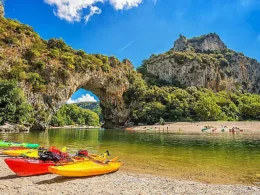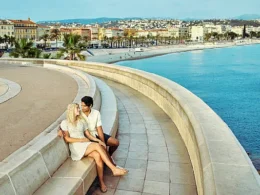Embarking on a unique stay in France involves immersing oneself in the distinctive experience of boat living. The tranquil waterways of France offer a serene backdrop for those seeking an unconventional yet enriching sojourn.
This guide is designed to offer practical insights into the nuances of boat living in France and the array of experiences it entails. From selecting the right vessel to navigating the intricate waterways, this exploration extends beyond mere accommodation and delves into embracing the coastal lifestyle.
Moreover, it encompasses onshore activities that are as diverse as they are captivating. Whether it’s the allure of historical towns or the charm of local markets, boat living in France presents an unparalleled way to savor the country’s cultural tapestry.
Choosing the Right Boat
Selecting the appropriate vessel is a crucial decision when considering boat living in France.
Boat size plays a pivotal role in this decision. The size of the boat should align with the intended use and the number of occupants. Larger boats offer more living space and storage, but they also come with higher maintenance costs. Conversely, smaller boats may have lower maintenance costs but could feel cramped for long-term living.
Maintenance costs are a significant consideration when choosing a boat for living in France. Larger vessels generally incur higher maintenance costs due to more extensive systems and components. On the other hand, smaller boats often have lower maintenance costs.
Balancing boat size and maintenance costs is essential to ensure a comfortable and sustainable boat living experience in France.
Navigating French Waterways
Choosing the appropriate waterways for navigating in France is a crucial aspect of boat living, requiring careful consideration of factors such as depth, width, and accessibility. France is crisscrossed by a network of rivers and canals, each with its own unique characteristics.
Understanding the lock systems is essential, as they regulate water levels and allow boats to move through different elevations. When navigating French waterways, it’s important to adhere to navigation tips and etiquette, such as yielding to larger vessels and being mindful of speed limits in certain areas.
Additionally, being aware of the specific regulations and requirements for each waterway is vital to ensure a smooth and enjoyable journey. Overall, a respectful and knowledgeable approach to navigating French waterways contributes to a safe and pleasant boat living experience.
Embracing the Coastal Lifestyle
An essential aspect of embracing the coastal lifestyle while living on a boat in France is understanding the unique maritime culture and adapting to the rhythms of coastal communities.
Coastal cuisine, characterized by fresh seafood and locally sourced ingredients, is a hallmark of the region. Exploring beachfront markets allows for an immersive experience, where one can savor the vibrant atmosphere and discover a plethora of delectable treats.
Seaside relaxation becomes a way of life, with the soothing sound of waves and the gentle sea breeze providing a constant backdrop. Coastal wildlife watching offers the opportunity to observe diverse marine life, from playful dolphins to majestic seabirds.
Embracing the coastal lifestyle on a boat in France means being part of a rich tapestry of traditions, flavors, and natural wonders that define this unique way of living.
Exploring Unique Onshore Activities
Exploring unique onshore activities while living on a boat in France involves immersing oneself in the distinctive coastal culture, engaging with local communities, and discovering the rich array of experiences available along the picturesque shores.
Seaside dining presents an opportunity to savor fresh, locally sourced seafood while enjoying breathtaking views of the French coastline.
Local markets offer a glimpse into the region’s culinary abundance, allowing boat dwellers to procure fresh produce, artisanal cheeses, and regional wines for a true taste of the area.
Additionally, engaging with the local communities provides insight into traditional customs, festivals, and a chance to interact with the friendly locals.
Exploring onshore activities not only enriches the boat living experience but also fosters a deeper connection to the unique coastal lifestyle of France.
Frequently Asked Questions
Is It Legal to Live on a Boat in France and What Are the Regulations Regarding Boat Living?
Living on a boat in France is legal with certain requirements. Residents need residential permits, adhere to mooring regulations, maintain the boat, manage living costs, take safety precautions, handle mail, access banking services, connect utilities, and procure internet access.
What Are the Typical Costs Associated With Maintaining a Boat for Long-Term Living in France?
Boat maintenance for long-term living in France involves various costs, including mooring fees, insurance, fuel, and regular upkeep. Budgeting for boat living in France should account for these expenses to ensure a comfortable and sustainable lifestyle.
Are There Any Specific Health and Safety Considerations for Living on a Boat in France?
Health regulations and safety precautions for living on a boat in France are essential. It’s important to adhere to local health guidelines, ensure proper ventilation, and maintain safety equipment. Regular checks and adherence to maritime regulations are crucial for a safe living environment.
How Do I Handle Mail, Banking, and Other Essential Services While Living on a Boat in France?
When living on a boat in France, managing mail can be done through a local post office or a mail forwarding service. Utilize online banking and local resources for essential services, and seek community support for any specific needs.
What Are the Options for Connecting to Utilities Such as Water, Electricity, and Internet While Living on a Boat in France?
When living on a boat in France, options for connecting to utilities like water, electricity, and internet include utilizing marina facilities, local amenities, or arranging for mobile services. Waste disposal, grocery shopping, and local resources are integral considerations.










